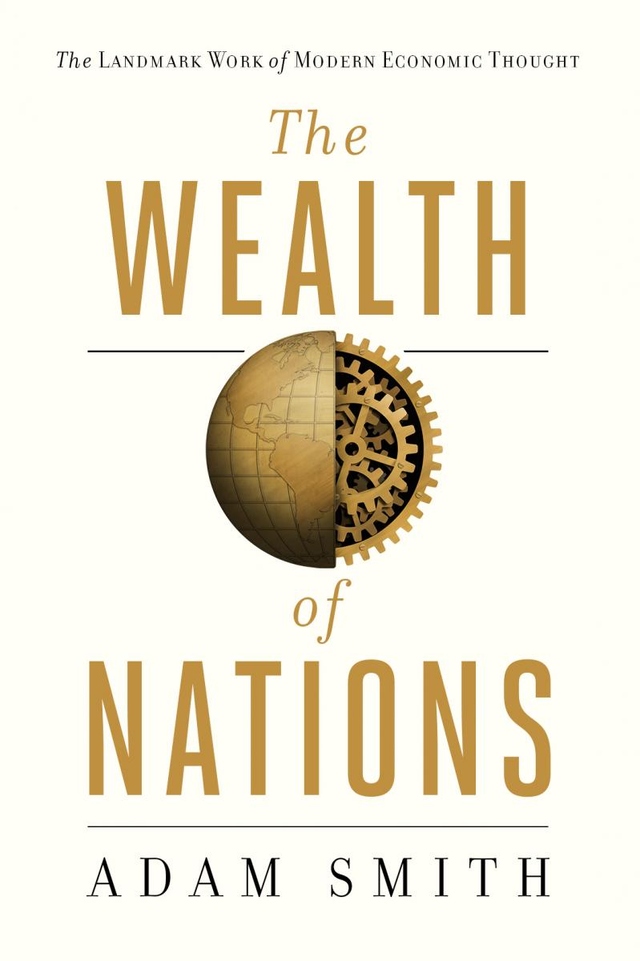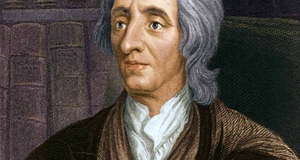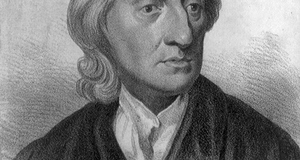Adam Smith and Religious Plurality in America
By
2016, Vol. 8 No. 03 | pg. 1/1
KEYWORDS:
The ideas of Adam Smith have remained relevant well beyond his lifetime. He is remembered as the father of modern-day economics and the author of the still widely read Wealth of Nations, known for his formulation of the invisible hand and consequent support of laissez-faire economics and government nonintervention in markets. However, Adam Smith was much more than an economic theorist and his legacy touches on far broader fields of inquiry. Smith's writings, most importantly An Enquiry into the Wealth of Nations,1 greatly influenced James Madison in his thoughts on the disestablishment of religion as espoused in Memorial and Remonstrance Against Religious Assessments (Remonstrance),2 in the Federalist Papers (specifically #10 and #51), and in the First Amendment’s Establishment and Free Exercise Clauses. Due in part to Smith’s influence on Madison, our country was founded on the principles of separation of church and state and religious liberty, which has led to the flourishing and acceptance of a multitude of religious beliefs and ideals in our country today. Adam Smith was not only the father of modern-day economics, but also a prominent contributor to the religious diversity still flourishing in this country over two hundred years later. The plurality of religions, sects, denominations, and religious beliefs and practices in the United States exemplify this country’s foundational principles of liberty, equality, and freedom. Changes over the past two hundred plus years, both legislative and judicial, have extended these principles to a greater number of Americans, and we are a society generally accepting of the great plurality of religious views held by our countrymen. America is the “melting pot,” and the First Amendment’s Establishment and Religious Liberty Clauses constitute the foundation for the free society we live in today. Although James Madison was the author of Remonstrance, Federalist #10 and #51, and the chief drafter of the First Amendment, it was the work of Adam Smith, espousing “separation of church and state for the protection and growth of religion,”3 that greatly influenced Madison in these writings. Although Wealth of Nations is widely-known for Smith’s ideas on economic liberty, Book V focuses on religion and the role government should, or should not play, in an individual’s religious practices. In Book V, Smith studies the historical detriments that have occurred when government plays a role in religion, concluding that a government’s establishment and support of a religion is detrimental to religion, government, and society. While Smith’s motive for disestablishment was based primarily upon his protection of the purity of religion, his thoughts on religion and government that influenced the foundational principles in the First Amendment have fortuitously led to a greatly pluralistic America, where an individual is free to believe, or not believe, as they wish. Many constitutional scholars have made the argument for Smith’s influence on Madison’s opinion on the subject of separation of church and state both in his prior writings and his drafting of the Establishment and Religious Liberty Clauses.4 In Remonstrance, Madison espoused for religious freedom and separation of church and state in the years prior to writing the Constitution.5 Madison wrote Remonstrance to oppose a bill in Virginia that would have established a salary for Christian teachers, stating “for it is known this Religion both existed and flourished, not only without the support of human laws, but in spite of every opposition from them.”6 Madison also believed that state intervention could adversely affect the purity of religion,7 writing, “ecclesiastical establishments instead of maintaining the purity and efficacy of Religion, have had a contrary operation.”8 Madison opined that religion would be corrupted by a state established church “because the subsidized churches would become unresponsive to the needs of congregants, secure in the knowledge that their funding would be guaranteed by government’s strong hand.”9 Based on his knowledge of the historical corruption of established churches, most likely including his knowledge of the Scottish Kirk, Madison viewed the historical experience of these established churches to be “pride and indolence in the Clergy; ignorance and servility in the laity; in both, superstition, bigotry, and persecution.”10 Smith wrote that “state regulation of religion would produce corruption as rulers sought to tax and prohibit churches that failed to support them.” Prior to Madison addressing state corruption of religion in Remonstrance, in very similar sentiment, Smith espoused in Wealth of Nations that a state established religion would lead to government corruption of religion. Smith noted that “state regulation of religion would produce corruption as rulers sought to tax and prohibit churches that failed to support them.”11 Smith, as a Scot living in 18th century Scotland, had first-hand and historical knowledge of the oppressive and corruptive Kirk and the Established Church of England. During his studies at University of Glasgow, his mentor Frances Hutcheson was the target of religious zealots. Likely impacted by the historically corruptive Kirk and the attacks on his mentor, Smith believed where “an established religion exists, the clergy becomes corrupted and the sovereign disempowered.”12 Smith writes in Wealth of Nations of the corruptive established religion,
Given that Smith wrote these words in Wealth of Nations in 1776, that Wealth of Nations was not only widely-read among the framers14 but was housed in 28% of American libraries in the years 1777-1790, which exceeded works by Locke and Rousseau,15 and given the great similarity in his thought to Madison’s words in Remonstrance, it is likely that Smith had significant impact on Madison’s thought and writing on the corruptive dangers of state support and establishment of a religion. In fact, Madison placed Wealth of Nations on his listing of volumes to be included in the Congressional library in 1783.16 Madison’s writings in Federalist # 51 and #10 also exhibit great similarity to Smith’s writings on religion in Wealth of Nations.17 In Federalist # 51, Madison stresses government nonintervention in religion would enable religions to grow and prosper. Madison writes, In a free government the security for civil rights must be the same as that for religious rights. It consists in the one case in the multiplicity of interests, and in the other in the multiplicity of sects.18 In Federalist #10, Madison makes his seminal argument that in a large republic there would be a larger diversity of parties so that there would be less chance for a majority to coalesce around a common cause, “rendering each faction less dangerous.”19 Both of these propositions stated in Federalist #51 and #10 have their genesis in Smith’s Wealth of Nationss. Years earlier, Smith opined that without government establishment, “religion would flourish numerically” and that “an increased number of sects would result in more competition-which would in turn create better teachers, better religious leaders, and more overall enthusiasm.”20 Smith was concerned that if one religion was state established, it could become involved in “violent religious controversy” and “violent faction.”21 In Wealth of Nations, Smith argues that disestablishment of religion promotes both equality and multiplicity of sects, as well as peace among them, noting, [t]he interested and active zeal of religious teachers can be dangerous and troublesome only where there is either but one sect tolerated in the society, or where the whole of a large society is divided into two or three great sects…But that zeal must be altogether innocent where the society is divided into two or three hundred, or perhaps into as many thousand small sects…. Smith was no stranger to religious zealotry and the oppressive impact a state established religion could have on free thought. In his view, religious competition reduces the zealotry of religion and enables no one sect to “be considerable enough to disturb the publick tranquility.”22 Through competition in religion, new churches would arise to meet parishioner’s needs, and the potential for new churches entering the market would be an impetus for churches to listen to the wants and needs of their congregants.23 Smith believed that this increased competition would lead to reduced fanaticism and increased tolerance due to the prospect of losing customers to other doctrines.24 In Federalist #51, Madison echoes Smith’s “many thousand small sects” with his “multiplicity of sects,” and similarly contends “a free government would allow religions and religious rights to grow.”25 Further support for Smith’s influence on Madison is found in Federalist #10.26 Iain McLean notes the strong similarity between Smith in Wealth of Nations and Madison in Federalist No. 1027 where each writer extols that “[a]n extended republic offers the best solution to the tyranny of the majority, because no one religious or political faction is likely to be dominant.”28 In Federalist No. 10, Madison’s pivotal argument is that in a large republic there would be a greater diversity of parties, which prevents any one faction from becoming a majority. This precise argument “is an extension of the argument” that Smith first lays out in Wealth of Nations regarding the benefits of a multitude of religious sects.29 Scholars recognize that Madison’s Remonstrance served as the impetus for the Virginia religious freedom statute and that statute and Madison’s writings in Federalist #10 and 51 served as precedent for drafting of the Establishment and Religious Liberty Clauses in the First Amendment.30 When the state conventions requested Madison draft the First Amendment provisions, the only disestablishment statute to refer to was the Virginia Statute.31 Given that Madison was deeply involved in the promulgation of the Virginia Statute, it is only natural that he would look to that statute for guidance in drafting the clauses. Given the great similarity between Adam Smith’s Wealth of Nations and Madison’s Remonstrance and Federalist # 10 and #51, the dispositive influence of Remonstrance on the Virginia statute, and the drafting of the First Amendment by Madison, there is a strong argument that Smith’s thoughts on religion ultimately made it into the First Amendment. Questions of religious liberty abound as much today as they did over two hundred years ago. Whether it was church protection from the state or state protection from the church, the prominent author of the First Amendment, James Madison, likely looked, in part, to Adam Smith for his thoughts on religious liberty. The questions of religious liberty today are just as controversial as the issues over two hundred years ago. Whether the issue is mandated payment for birth control under Obamacare, ordering state clerks to perform same-sex marriage, or forcing pharmacists to sell abortion pills, the debate over the meaning and extent of the First Amendment’s Religious Liberty and Establishment Clauses is always at the forefront of judicial activity. However, these same clauses, carrying the imprint of Adam Smith, have led to a greatly diverse and religiously pluralistic society. Endnotes
Suggested Reading from Inquiries Journal
Inquiries Journal provides undergraduate and graduate students around the world a platform for the wide dissemination of academic work over a range of core disciplines. Representing the work of students from hundreds of institutions around the globe, Inquiries Journal's large database of academic articles is completely free. Learn more | Blog | Submit Latest in History |

















